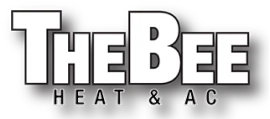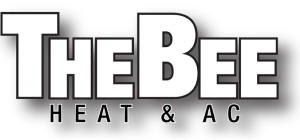As the warmer months approach, it’s essential to ensure your HVAC (Heating, Ventilation, and Air Conditioning) system is ready to keep your home comfortable during spring and summer. This article will guide you through the necessary steps to prepare your HVAC system for optimal performance, energy efficiency, and longevity. Let’s dive in!
On This Article
hide
1)
The Importance of HVAC Maintenance
1.1)
Energy Efficiency
1.2)
System Longevity
1.3)
Indoor Air Quality
2)
Preparing Your HVAC for Spring and Summer
2.1)
Schedule a Professional Inspection and Maintenance
2.2)
Clean or Replace Air Filters
2.3)
Clean and Inspect Condenser Coils
2.4)
Check Refrigerant Levels
2.5)
Inspect and Clean Ductwork
2.6)
Test Thermostat and Controls
2.7)
Clear the Area Around the Outdoor Unit
3)
Additional Tips for Optimizing Your HVAC
3.1)
Use a Smart Thermostat
3.2)
Insulate Your Home
4)
Conclusion
5)
FAQs
The Importance of HVAC Maintenance
Maintaining your HVAC system is crucial for several reasons:
Energy Efficiency
A well-maintained HVAC system consumes less energy, reducing your utility bills and carbon footprint.
System Longevity
Regular maintenance extends the life of your HVAC equipment, saving you money on costly replacements and repairs.
Indoor Air Quality
Routine maintenance helps improve your home’s indoor air quality by removing dust, allergens, and pollutants that can accumulate in your system.
Preparing Your HVAC for Spring and Summer
Follow these steps to ensure your HVAC system is ready for the warmer months:
Schedule a Professional Inspection and Maintenance
Hire a licensed HVAC technician to inspect and service your system. They will check for potential issues, clean components, and perform necessary adjustments to keep your system running efficiently.
Clean or Replace Air Filters
Dirty air filters restrict airflow and force your system to work harder, reducing efficiency and increasing energy consumption. Replace or clean your filters every 1-3 months, depending on your system’s requirements and your home’s air quality.
Clean and Inspect Condenser Coils
Your outdoor unit’s condenser coils should be clean and free of debris for optimal performance. A professional can inspect and clean the coils during routine maintenance, but it’s a good idea to check them periodically and remove any visible debris.
Check Refrigerant Levels
Low refrigerant levels can lead to reduced cooling capacity and potential damage to your system. A professional technician can check and adjust refrigerant levels during a maintenance visit.
Inspect and Clean Ductwork
Blocked or dirty ducts can reduce your system’s efficiency and negatively affect your home’s air quality. Inspect your ducts for any obstructions, and if necessary, schedule a professional duct cleaning service.
Test Thermostat and Controls
Check your thermostat’s accuracy by comparing its temperature readings with a separate thermometer. If there’s a significant discrepancy, recalibrate or replace the thermostat. Additionally, test all system controls to ensure they’re functioning correctly.
Clear the Area Around the Outdoor Unit
Remove any debris, vegetation, or clutter around your outdoor unit to ensure proper airflow and prevent potential damage.
Additional Tips for Optimizing Your HVAC
Use a Smart Thermostat
A smart thermostat learns your schedule and preferences, adjusting your HVAC system accordingly to save energy and increase comfort. These devices can be controlled remotely, allowing you to monitor and adjust your home’s temperature even when you’re away.
Insulate Your Home
Proper insulation helps keep your home cool in the summer and warm in the winter, reducing the workload on your HVAC system. Inspect your home’s insulation, and if necessary, add more or upgrade to a higher R-value material. Pay special attention to areas like attics, crawl spaces, and exterior walls.
Conclusion
Preparing your HVAC system for spring and summer is essential for maintaining a comfortable home environment and optimizing energy efficiency. By following the steps outlined in this article, you’ll ensure your system is in top condition, extending its lifespan and improving your home’s indoor air quality. Remember, regular maintenance is crucial for the health of your HVAC system, and investing time and effort now will save you money and headaches in the long run.
FAQs
How often should I have my HVAC system serviced?
It’s recommended to have your HVAC system serviced at least once a year, ideally during spring or fall. This allows a professional to identify and address any issues before they become major problems.
Can I perform any HVAC maintenance tasks myself?
Homeowners can perform some basic maintenance tasks, such as replacing air filters, cleaning the outdoor unit, and checking the thermostat. However, it’s crucial to hire a professional for more complex tasks like inspecting and cleaning coils, checking refrigerant levels, and servicing the system.
How do I know if my HVAC system needs to be replaced?
Some signs that your HVAC system may need to be replaced include frequent breakdowns, increased energy bills, uneven temperatures, and poor indoor air quality. Generally, if your system is more than 10-15 years old and requires costly repairs, it’s worth considering a replacement.
What is the ideal temperature setting for my thermostat during spring and summer?
The ideal temperature setting depends on your personal preferences and comfort level. However, the U.S. Department of Energy recommends setting your thermostat to 78°F (26°C) when you’re at home and awake, and higher when you’re away or asleep, to save energy and reduce cooling costs.
How can I improve my home’s energy efficiency without upgrading my HVAC system?
In addition to maintaining your HVAC system, you can improve your home’s energy efficiency by sealing air leaks, adding insulation, installing energy-efficient windows, using ceiling fans, and shading your home from direct sunlight with curtains, blinds, or landscaping.

